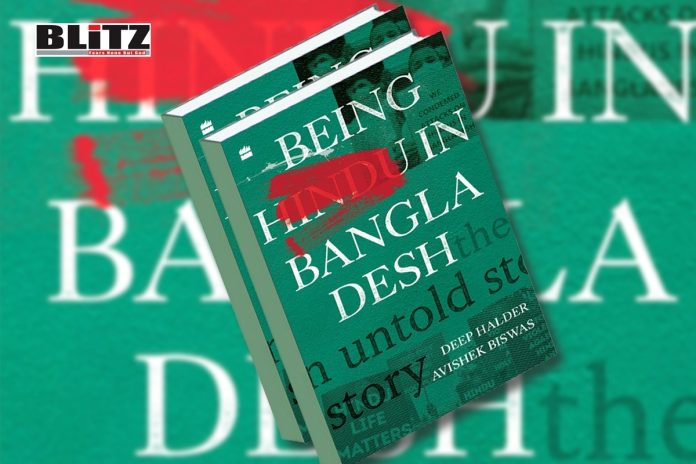In the needlepoint of South Asia’s complex history, Bangladesh emerges as a nation forged through sacrifice and resilience. The echoes of its birth in 1971, amid the harrowing genocide perpetrated by the Pakistani military, still reverberate through its societal fabric. The bloodshed claimed millions of lives and displaced countless more, leaving scars that run deep. Yet, from the ashes of despair, Bangladesh arose, a testament to the indomitable spirit of its people.
At the heart of Bangladesh’s narrative lies the story of its minorities, particularly the Hindu community, whose journey embodies both resilience and struggle. The book of “Being Hindu in Bangladesh” authored by Deep Halder and Avishek Biswas, unravels the intricate tapestry of their experiences, chronicling a legacy shaped by turmoil and hope.
The vision articulated by Bangabandhu Sheikh Mujibur Rahman, the founding father of Bangladesh, encapsulates the inclusive ethos upon which the nation was conceived. His words, resonant with a profound sense of unity, transcend religious divides, underscoring the shared ownership of the nation’s destiny. However, Mujibur’s grand vision was tragically cut short by the specter of violence, as his life was extinguished in a brutal coup in 1975.
Subsequent decades bore witness to Bangladesh’s tumultuous journey, marked by periods of military dictatorship and democratic resurgence. Despite the strides towards political stability and economic growth, the shadow of communalism looms large, casting a pall over the nation’s pluralistic identity. The erosion of the Hindu population from 13.5% in 1974 to 7.9% in 2022 speaks volumes about the challenges confronting minority communities.
The resurgence of Islamic fundamentalism and the rise of anti-minority sentiments, propagated by political factions such as the Bangladesh Nationalist Party (BNP) and the Bangladesh Jamaat-e-Islami, pose a formidable threat to Bangladesh’s secular ethos. The sporadic attacks on the minority community, exemplified by the violence during the Durga Puja celebrations in 2021, serve as stark reminders of the fragility of religious harmony.
Amidst these challenges, Bangladesh finds itself at a critical juncture, facing the task of preserving its syncretic heritage while advancing towards development. The leadership of Sheikh Hasina, the daughter of Bangabandhu Sheikh Mujibur Rahman, the founding father of the Bengali nation, holds significant significance in this pursuit. As she begins her historic fifth term as Prime Minister, her dedication to upholding Bangladesh’s secular principles becomes increasingly vital.
The ruling Awami League government, led by Prime Minister Sheikh Hasina, has worked diligently to uphold the principles of inclusivity and pluralism. However, the path ahead is fraught with challenges, demanding a vigilant stance against forces that threaten national unity. Priorities include enhancing diplomatic relations with India and navigating the complexities of global geopolitics, especially amidst increasing Chinese influence.
The lessons gleaned from the tumultuous history of Pakistan serve as cautionary tales, underscoring the perils of succumbing to sectarian strife. Bangladesh’s trajectory, though fraught with challenges, holds the promise of a brighter future, anchored in the ideals of justice, equality, and fraternity. The dream envisioned by Bangabandhu Sheikh Mujibur Rahman, of a nation where diversity is celebrated and cherished, beckons as a guiding light in these troubled times.
As Bangladesh navigates the currents of change, it must remain steadfast in its commitment to pluralism and tolerance. The legacy of sacrifice and struggle, embodied by its Hindu minority, serves as a poignant reminder of the resilience of the human spirit. In nurturing a culture of inclusivity and mutual respect, Bangladesh can forge a path towards a future where the dreams of its founders are realized in all their glory.




